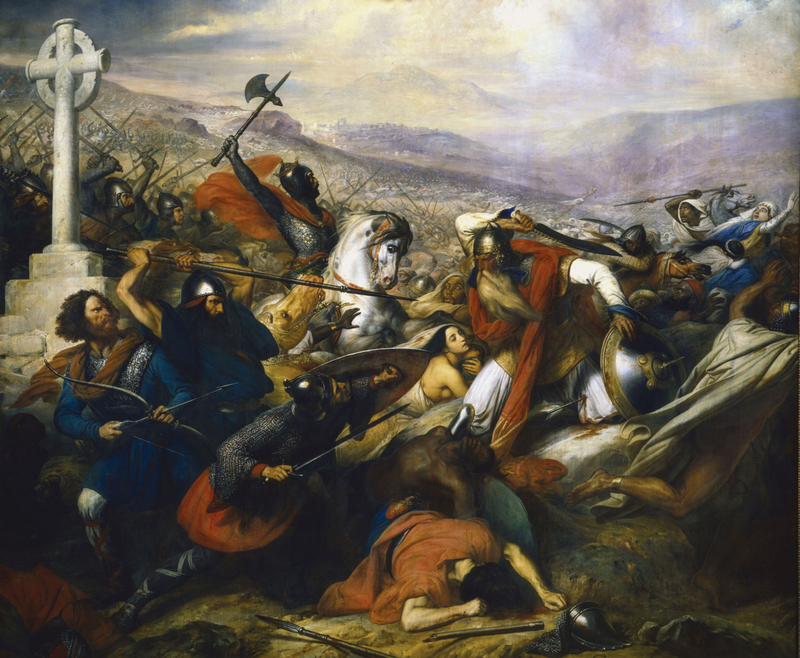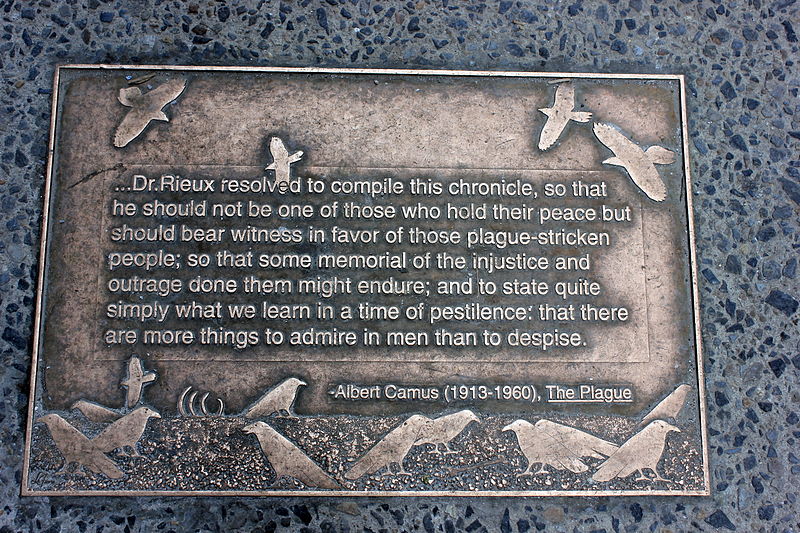
“Independent voters try to keep the Ship of State from keeling over – here, ‘too far to the right…'”
* * * *
My last post was On my “new” Missouri River canoe trip, back on July 5, 2020.
My “Adventurous Brother” and I completed the trip. (115 river miles down the Missouri River, from South Sioux City to Omaha, Nebraska.) We left South Sioux City at 2:30 the afternoon of July 9, and got to Omaha at 5:00 the afternoon of July 12. In between – and before, for that matter – there were distractions, complications and near-disasters. (An 80-mile-an-hour windstorm for one.) But we came through, “Mission Accomplished!” The only problem is that a full postmortem account will take time, and I’m long overdue to submit a new blog-post.
So, I decided to take a look at “this time last year.”
What I found was three year-old draft-projects that I never finished, so here goes. One project was “On partisan gerrymandering,” on the then-just-released Supreme Court case, Rucho v. Common Cause. (Of which more later.) The second unfinished project was the start of a new book – composed of a series of posts herein? – tentatively titled.”My adventures in old age.” Of which the recent Missouri River canoe trip was an example. Meanwhile, the original title of this post was supposed to be “Wanna beat Trump? Laugh at him!” And it featured the “Independent voters … Ship of State” lead image and caption at the top of the page.
 That unfinished post was based in part – and was a partial review of – a book, The New Rules of War: Victory in the Age of Durable Disorder, by Sean McFate. (“82nd Airborne veteran, former private military contractor, and professor of war studies at the National Defense University.”)
That unfinished post was based in part – and was a partial review of – a book, The New Rules of War: Victory in the Age of Durable Disorder, by Sean McFate. (“82nd Airborne veteran, former private military contractor, and professor of war studies at the National Defense University.”)
The book offered ten “new” rules for victory, and Rule Five is “The best weapons do not fire bullets.” And one of those non-bullet new weapons was – humor. There’s more on other such weapons in the notes, but the key point came in this set of observations:
Google “humor as a weapon,” and you’ll get sites like Humor is a weapon – so you better learn how to use it. Which offered the following quotes: “The human race has only one really effective weapon and that is laughter,” by Mark Twain. Also “Wit is a dangerous weapon, even to the possessor, if he knows not how to use it discreetly.” (Michel de Montaigne, the French writer (1553-1592) “one of the most significant philosophers of the French Renaissance, known for popularizing the essay as a literary genre. His work is noted for its merging of casual anecdotes and autobiography with intellectual insight.) Then there’s this full quote:
Authority is a natural target the world over for comics. Remember it, cherish it, use it. People all around the world hate their leaders, their systems, the powers they have to labor under. This humor is nihilistic – no one is too powerful or too pure to be beyond reproach. Just remember lots of people have sympathy for the underdog, so direct that hostility upwards.
* * * *
Now about that draft post – from a year ago – tentatively titled.”My adventures in old age.” It had links to past posts on such adventures as my canoeing 12 miles off the coast of Mississippi, and into the Okefenokee Swamp, as well as hiking the Appalachian Trail (in small part) and the Chilkoot Trail. In toto, that is, all 33 of the “meanest 33 miles in history.”
For the full set of links see the notes below, but I wanted to focus on one link I found. It’s on the adventures of other people in Old Age, The Top Ten Late Bloomers Of All Time | Psychology Today. And from which I draw inspiration. (Heck, I just turned 69 years old. Or young!)
* * * *
And finally, the third draft post from a year ago had to do with “SUPREME COURT OF THE UNITED STATES (Rucho v. Common Cause). The main question: “Is North Carolina’s 2016 congressional map an unconstitutional partisan gerrymander?” The Supreme Court basically punted, saying the issue was one for state courts. I concluded in turn that the net holding was not to allow such partisan gerrymandering in all cases. It merely “kicks the issue back to the states.” (“Much as would be true if the Court overrules Roe v. Wade,” which remains to be seen.)
And – I wrote – some states were beginning to do just that. (Outlaw partisan gerrymandering.) I cited Supreme Court’s ruling on gerrymandering doesn’t directly affect Florida: “In its majority opinion Thursday, the U.S. Supreme Court referenced Florida’s Constitution in asserting that states have the ability to solve this issue themselves.” I also cited Another View: Florida’s amendments thwart partisan gerrymandering.
Which made me thankful that our 50 states are now just the “laboratories of democracy” that may yet save this country. The phrase was popularized by U.S. Supreme Court Justice Louis Brandeis in New State Ice Co. v. Liebmann (1932). The phrase describes how “a single courageous State may, if its citizens choose, serve as a laboratory; and try novel social and economic experiments without risk to the rest of the country.” See Wikipedia.
It springs in part from the 10th Amendment of the U.S. Constitution, which says, “all powers not delegated to the United States … are reserved to the States respectively, or to the people.” That is, the 10th Amendment “assigns most day-to-day governance responsibilities, including general ‘police power,’ to the state and local governments.” One positive result? Because of the “diverse patchwork” of non-federal governments, the several states and/or localities are free to try different public policies to solve problems. In turn, ” If any one or more of those policies are successful, they can be expanded to the national level by acts of Congress.”
Now, if we can just get a state to kick COVID‘s ass. Or get those Feds out of Portland…
* * * *

Did the 2016 U.S. presidential election create a monster? Time will tell…
* * * *
The upper image is courtesy of Yachting Keel Over – Image Results. Accompanied by an article “Real-life Bond performs daring boat stunt off the Isle of Wight.” See I’m 007 and I won’t keel over! Real-life Bond performs (March 2012, but also ‘Show-off’ businessman caused Isle of Wight boat crash, BBC News, from March 2017). Click on I’m 007 and I won’t keel over! Then the “Read it” icon.
Re: Ship of State. See Wikipedia, noting the “famous and oft-cited metaphor put forth by Plato [circa 400 B.C.] in Book VI of the Republic (488a–489d).” But which can also be traced “back to the lyric poet Alcaeus (frs. 6, 208, 249), and it is found in Sophocles’ Antigone and Aeschylus‘ Seven Against Thebes before Plato.” Sophocles appeared to be a relative contemporary of Plato, while Aeschylus and Alcaeus (“c. 620 – 6th century BC”), appeared to predate him by 100 to 200 years.
* * * *
Re: “There’s more on other such weapons.” Here follows – down to the next four asterisks (****) – a lot of notes on McFate’s book that may confuse a reader or lead him astray – if not set off by the aforementioned asterisks. But note too that the next set of notes, including the source of other images, will begin with the next set of four asterisks.
First, for our purposes, McFate noted the “declining utility of force” (as in Russia’s Putin “weaponizing refugees rather than threatening firepower,” indirectly, by bombing Syria, which drove tens of thousands of refugees into Europe and “stoking anti-establishment policies across the continent… Right-wing nationalist parties, once shunned as neo-Nazis became popular … for the first time since the 1930s”.) Then McFate moved to “Warriors of the Mind.” As in, Get a Mac – Wikipedia, and Case Study: “Mac vs. PC” Advertisement Campaign – Hannah’s Media Leap Blog. The campaign had a huge impact, tripling computer sales and becoming iconic “to this day.” How did Apple do it? “The secret is simple: denigration. Going negative is powerful, but the trick is to make the target look like the wrongdoer… It’s beautiful ridicule, highly manipulative, and it works.”
From there McFate spoke of the “humor” weapon against ISIS, and others:
ISIS and its successors would shrivel like the Wizard of Oz if the Muslim world could belly laugh over them… Putin’s cult of personality would whither [sic] under the power of denigration. In fact, he’s easy pickings, given his naked bear-riding habit… This works especially well against autocracies because they are often built on a cult of personality and the infallibility of leadership. Make such leaders fallible.
He went on to note that one key is gaining information superiority, first through monitoring (“know your enemy”) and second through discrediting: “pinpointing fake news, alternate facts … false narratives, viral memes and negative frames, and then exposing them. Myth-busting must happen, otherwise people may start to believe the spin. This task is especially critical for democracies…” And finally, counter-attacking, “and this is where Western countries grow weak in the legs.” (For that matter so do “polite” liberals and moderates.) Again, the prime method of counterattack is denigration, while looking like the good guy, conveying empathy, aligning with “preconceived knowledge” and being “funny but not stupid.”
For other reviews Google “the new rules of war sean mcfate.” Of particular interest: The new rules of war. Sean McFate – The Junior Officers’ Book Shelf, and Reviewing The New Rules of War – The Strategy Bridge (“A critical reader might also find inspiration here. As McFate presents them, however, the new rules are a starting point and far from the last word on victory or how to get there”).
* * * *
Re: “For the full set of links see the notes.” The first one listed in this post was Canoeing 12 miles off the coast of Mississippi. (From 7/19/17.) That cited On canoeing 12 miles offshore, from May 2015. See also On “A Walk in the Woods” – Part I and On “A Walk in the Woods” – Part II, on an overnight hike on the Appalachian Trail. I’ve written about my Okefenokee adventures in several posts: Operation Pogo – “Into the Okefenokee” (11/7/15), “Into the Okefenokee” – Part II (11/15/15), “Into the Okefenokee” – Part III (11/24/15), “There he goes again…” (5/30/16), and “There he goes again” – Revisited (5/31/17). And see Remembering the “Chilkoot &^%$# Trail!”
The lower image is courtesy of Laboratories Democracy States – Image Results. The image is accompanied by an article, If States are the “Laboratories of Democracy,” Then Young Frankenstein Runs California. The article was from Legal Insurrection, “one of the most widely cited and influential conservative websites… Our work has been highlighted by top conservative radio personalities, such as Rush Limbaugh and Mark Levin.” But see also Legal Insurrection – Media Bias/Fact Check: “These media sources are moderately to strongly biased toward conservative causes through story selection and/or political affiliation. They may utilize strong loaded words (wording that attempts to influence an audience by using appeal to emotion or stereotypes), publish misleading reports and omit reporting of information that may damage conservative causes. Some sources in this category may be untrustworthy.” Note the article was written before the “Covid,” so for an alternate view see California coronavirus: What the state is doing right – CNN.
* * * *
And finally, the original “laugh at him” post contained notes from an apparent “cultural elites” file. It was about those “cultural elites” that Trump supporters love to hate. The notes below are in rough form, include some personal observations, and are included solely for purposes of completeness:
acts of deliberate transgression against what many Trump supporters have come to view as the supposedly stifling ethics of our cultural elites
sending ” those damn media types into a tizzy”
a given act is actually praiseworthy and brave if it draws condemnation from the despised left-wing media.
just another handy weapon for triggering the pearl-clutching libs.
Send Her Back! Send Her Back! – The Bulwark
That portion of American society that has pretty much ruled America during the latter half of the 20th century, and the 21st century as well, up to Election Day, 2016.
Since the end of World War II, the rest of the world has looked at America as that “city on a hill” it has claimed to be since the beginning. And America has responded – by and large – by accepting the mantle of world leadership. And because America is a land of such promise, people from other countries keep trying to come here. But – by and large – they are no longer white, English-speaking and mostly European. Which frightens a large segment of American society.
Aside from that the mantle of world leadership is heavy. It means not going off half-cocked. It means being responsible, and thinking through what we say and do. And many Americans seem to think we should act more like Russia, imposing our will on the rest of the world by sheer force. Which – from all accounts – is what we used to do in the days of Teddy Roosevelt.
And it could be that the Americans who support Trump would love to see a return of a bit of American imperialism. (On the other hand, if that’s true, why did Russia try so hard to get Trump rather than Hillary elected?)
Class warfare between workers and elites explains Trump …
What’s happening in America is an echo of what’s happening in democracies around the world, and it’s not happening because of Trump. Trump is the symptom of a ruling class that many of the ruled no longer see as serving their interest, and the anti-Trump response is mostly the angry backlash of that class as it sees its position, its perquisites and — perhaps especially — its self-importance threatened.
Trump’s dislike of — and desire to be a part of — the ‘elite’
Trump has since made a name for himself — in New York City and, more unexpectedly, in Washington. As he reminded his Minnesota supporters, he won the presidency — which by one definition automatically puts him among the elites: “a group of persons exercising the major share of authority or influence within a larger group.”
By all accounts, Trump supporters – or as Hillary called them, “the deplorables” – exercise the major share of authority and influence within the Republican Party, which is the governing party in the United States. The group’s values on racial issues, the economy, immigration and other cultural issues has a louder and bolder advocate in the Oval Office than at any other time in recent history.
But perhaps the reason it is difficult to embrace that definition is because Trump and many of his supporters believe that winning isn’t all that matters. It matters that you be viewed as a winner. And for a president who has been quick to lob the label “loser” at those with whom he didn’t find favor, knowing that there are many Americans who don’t want him in their club is a great source of anger.
Elite – Wikipedia a small group of powerful people who hold a disproportionate amount of wealth, privilege, political power, or skill in a society. Defined by the Cambridge Dictionary, the “elite” are “those people or organizations that are considered the best or most powerful compared to others of a similar type
a relatively small, loosely connected group of individuals who dominate American policy making. This group includes bureaucratic, corporate, intellectual, military, media, and government elites who control the principal institutions in the United States and whose opinions and actions influence the decisions of the policymakers
Why a lot of Americans resent the cultured “New York City elite.”
I think this feeling was shared by some of the voters who went for Trump – as well as Brexit beforehand. Trump, a masterful populist, has manipulated this very real bitterness, raising his 18-carat pitchfork against “liberal elites” for his own political gain.
a cultural elite may be disliked for reasons that are as not particularly economic: college professors, experts, NGO staffers and psychotherapists are not corporate titans, after all. It’s a new variation of an old-fashioned populism that is anti-intellectual and anti-expert.
Trump and his family may be mining this anti-elite anger, but they are, of course, preposterously upscale, living in Trump Tower, attending expensive private schools, flying about in private jets (now with in-flight Secret Service) and dining in five-star restaurants.
Republicans are benefitting from the cultural resentment of their non-elite electorate. They also aren’t proposing anything that could make life better for the people who actually live in small towns or in “flyover” states.
* * * *

And just as an aside: The day we left to go our separate ways – Thursday, September 22 – I kayaked across the Verrazano Narrows. Mostly following the Bridge of the same name, and here’s a picture “down below” to prove it. I took it half-way back to Staten Island. Note that the waters are choppy, and in fact WAY choppier than when I started. It only took 20 minutes to get from Staten Island to Brooklyn, so I toyed with the idea of cruising along the Atlantic side of Brooklyn awhile. But I headed back while still fresh, as detailed in “Part II.”

 That unfinished post was based in part – and was a partial review of – a book,
That unfinished post was based in part – and was a partial review of – a book, 
 It’s Sunday May 10, 2020, and we’re at the end of eight full weeks of the
It’s Sunday May 10, 2020, and we’re at the end of eight full weeks of the  Some of the courses I’ve begun so far:
Some of the courses I’ve begun so far: Lecture One included a quote from
Lecture One included a quote from 

 Re: The “dumbasses” Voltaire quote. See
Re: The “dumbasses” Voltaire quote. See 
 And I last posted here back on April 17, almost two weeks ago. So on this last day of April, 2020, I’m juggling four or five possible blog posts. Like “Memories of Lori,” based on listening today to the
And I last posted here back on April 17, almost two weeks ago. So on this last day of April, 2020, I’m juggling four or five possible blog posts. Like “Memories of Lori,” based on listening today to the  But don’t take my word for it.
But don’t take my word for it. 

 Back in mid-March (a month ago), we had a
Back in mid-March (a month ago), we had a  As for deaths, to date some 28,000 Americans have died from Covid-19. The 1918 Spanish flu killed some 675,000 Americans.* Worldwide there have been some 134,000 Covid-19 deaths. (
As for deaths, to date some 28,000 Americans have died from Covid-19. The 1918 Spanish flu killed some 675,000 Americans.* Worldwide there have been some 134,000 Covid-19 deaths. (
 The lower image is courtesy of
The lower image is courtesy of 

 The good news: There is now both vaccine and valid treatment for the plague of in Camus’ novel, at left. (Like “
The good news: There is now both vaccine and valid treatment for the plague of in Camus’ novel, at left. (Like “ With none of my sport-teams playing, there’s no “
With none of my sport-teams playing, there’s no “ So much for that question. It’s a good thing we don’t believe in those silly superstitions anymore. And it’s a good thing history doesn’t repeat itself. And that we can learn so much from the lessons of the past, but we’re digressing again. So, going back to that
So much for that question. It’s a good thing we don’t believe in those silly superstitions anymore. And it’s a good thing history doesn’t repeat itself. And that we can learn so much from the lessons of the past, but we’re digressing again. So, going back to that 





 We celebrated July 4th over two weeks ago.
We celebrated July 4th over two weeks ago. Which is another way of saying that limiting the number of presidential terms is a “vital check against any one person, or the presidency as a whole, accumulating too much power.” Or as
Which is another way of saying that limiting the number of presidential terms is a “vital check against any one person, or the presidency as a whole, accumulating too much power.” Or as  Conservatives wish – and liberals dread – that without the 22d Amendment Donald Trump might well end up “our dictator for the remainder of his life.” (As he himself has “joked.” See
Conservatives wish – and liberals dread – that without the 22d Amendment Donald Trump might well end up “our dictator for the remainder of his life.” (As he himself has “joked.” See 

![âThereâs No Such Thing as a Conservative Christianâ: and Other Such Musings on the Faith of the Bible by [Ford, James B.]](https://images-na.ssl-images-amazon.com/images/I/41I-p6zVnFL.jpg) He’d been goaded by having read – under protest no doubt – the paperback version of my just-published e-book,
He’d been goaded by having read – under protest no doubt – the paperback version of my just-published e-book,  The point is: Life isn’t “black and white,” the way ardent liberals and conservatives alike believe. Everyday life is full or gray areas, as noted in
The point is: Life isn’t “black and white,” the way ardent liberals and conservatives alike believe. Everyday life is full or gray areas, as noted in  Which is – as it turns out – just the problem that Moses, Paul and Jesus all had to face. (And Socrates as well, as shown at right.) They all had to “dumb it down” and – in my view – do so mostly for the more conservative among us, then and now. Or as Colin Powell put it: “Great leaders are almost always great simplifiers, who can cut through argument, debate and doubt, to offer a solution everybody can understand.”
Which is – as it turns out – just the problem that Moses, Paul and Jesus all had to face. (And Socrates as well, as shown at right.) They all had to “dumb it down” and – in my view – do so mostly for the more conservative among us, then and now. Or as Colin Powell put it: “Great leaders are almost always great simplifiers, who can cut through argument, debate and doubt, to offer a solution everybody can understand.”

 So for this year’s Lenten period I added – as I have done before – some serious
So for this year’s Lenten period I added – as I have done before – some serious  As time went on I started running out of time. Then one sleepless night about a week ago, I got up about 3:30 in the morning, got one more beer and started reading the Kindle version of the first volume of
As time went on I started running out of time. Then one sleepless night about a week ago, I got up about 3:30 in the morning, got one more beer and started reading the Kindle version of the first volume of 